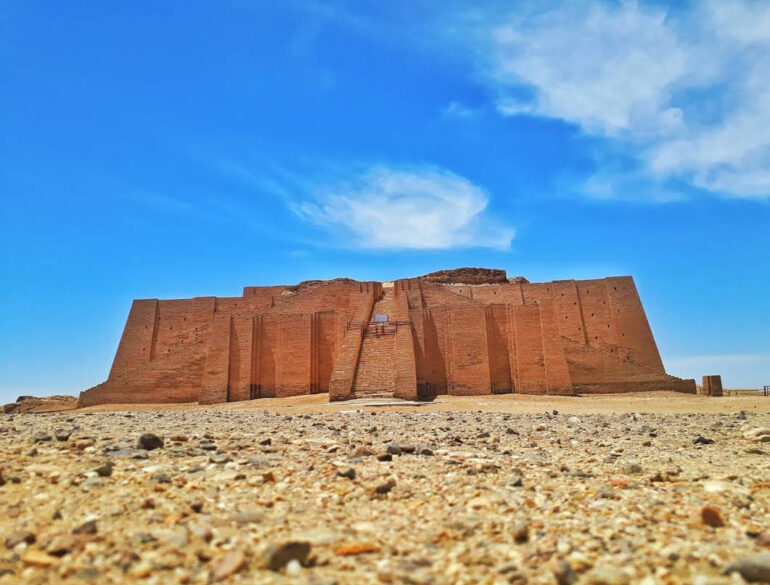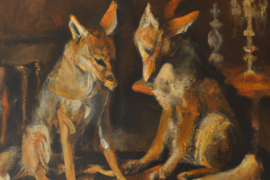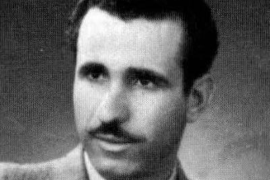There were once three brothers who grew up in a land not their own. They and their father descended from the family of Ever, descendent of Shem, and hailed from the Levant. But when the descendants of Canaan invaded from Africa, the surviving descendants of Ever were forced to move away from their home.
They found their way to Ur, a metropolis of the ancient world located near the mouth of the Euphrates river.
Ur was a bustling city full of trade and innovation, but like everywhere else the prevailing culture was one of paganism and barbarism, where people lived base and morally corrupt lives. They would placate their Mesopotamian deities such as An, Enlil and Enki with sacrifices to free themselves to continue this lifestyle. Ever’s descendants, who were selected to educate the world in ethical panentheism and the spiritual path, were unable to make inroads in spreading this Divine message to the masses.
Until one day, when one of the brothers, Avram, decided to take a more militant stance against the idolatrous culture surrounding him. For a long time he had been examining this idolatrous culture and questioning how any one deity could be worshipped when clearly it did not possess full control over the world, and was subject to other forces outside of itself.
Eventually, Avram came to the conclusion that there must exist a Higher Power that governs the laws of nature and runs all of existence in accordance with His will. Once he came to this realization and the obligations it entailed, he took it upon himself to teach it to the rest of the world. So when supposed to be looking after his father’s idol store, he smashed all the idols to pieces except the largest one. When his father Teraḥ returned and asked Avram what had happened, Avram blamed the largest idol. When Teraḥ replied that that was impossible since idols cannot think, speak or move, Avram responded with the obvious retort: “Then why do you serve them?”
Word of this episode soon reached Nimrod, the mighty Mesopotamian ruler who had ordered the construction of the Tower of Bavel.
Nimrod ordered that Avram be brought before him and a frightened Teraḥ reluctantly complied. When Avram stood face to face with Nimrod, the latter threatened him with death unless he gave up his beliefs and embraced the worship of the Mesopotamian gods. When Avram stood firm, Nimrod ordered that he be thrown into a furnace. But Avram emerged from the fire completely unharmed!
Haran, one of Abram’s two brothers, had been watching the events closely. He had been unsure whether to follow his brother’s radical panentheism or the idol worship espoused by Nimrod. But when he saw Avram miraculously emerge from the fire, Haran proclaimed, “I too believe in the existence of a Creator!” and was thrown into the furnace expecting to be saved. But Haran did not have sufficient merit to be saved, and was killed by the fire.
Teraḥ, the father, was shaken by this episode and devastated by the loss of one of his sons. Haran had left behind three children; two daughters named Milka and Yiska, who Naḥor and Avram respectively took as wives, and a son named Lot. Teraḥ decided that his family was no longer safe living in Ur, and taking his family with him, he set out to return to Canaan, their ancestral homeland in the Levant, for albeit occupied with Canaanites, he reasoned that there they would be far from Nimrod’s iron hand and safe from persecution.
After traveling west for many days, the family arrived at Ḥaran. A great metropolis located within Aram, Ḥaran was a cosmopolitan city home to people from many of the seventy nations that had emerged some years ago following the Great Dispersion.
Naḥor, looking around, decided that Ḥaran would be an ideal place to advance their family’s mission of spreading knowledge of God to humankind. Teraḥ agreed, and the family settled in Ḥaran and began proclaiming ethical panentheism and teaching it to the masses. Their efforts initially bore fruit as they attracted followers with their teachings, but for Naḥor this plan ultimately backfired. For instead of influencing his surroundings to return to the Creator, Naḥor and his family were influenced by their surroundings, and his son and grandson B’tuel and Lavan assimilated so thoroughly into Aramean culture that they considered themselves Arameans, perhaps no longer seeing their being descendants of Ever as their central identities.
Who knows if Avram wouldn’t have followed the same path? He and his wife Yiska – also known as Sarai – were certainly heavily invested in educating their neighbors about the Creator, and attracted a large number of followers. But this was not to be, for at the advanced age of 75, Abram received a prophetic message from the Creator, the first communication from the Creator he had received:
“Go for yourself, from your land, from your birthplace and from your father’s house, to the Land which I will show you.”
“Cease your attempting to change the idolatrous nations within which you dwell from the inside out. Instead, go to your own land, the land which your family was displaced from generations ago, for there you will become the founder of a great nation, a nation that will bring other nations closer to Me by creating and displaying its own culture of k’dusha. You will become a blessing for all mankind, those who bless you I will bless and those who curse you I will curse, and through you all the nations of the world will come to view each other as families, uniting under their respective services of God.”
So Avram left behind his father, brother and sister-in-law, and began the long trip south from Ḥaran to Canaan, together with his wife, nephew and all the followers he and Sarai had gathered in Ḥaran.
Thus these two branches of the family of Ever took very different paths, though they would not be lost to each other entirely. For instance, Avram’s future son Yitzḥak would eventually marry Naḥor’s granddaughter Rikva, and their son Yaakov too would marry women from Naḥor’s family.
After many days of traveling, Avram arrived with Sarai and Lot in Canaan, where he first pitched his tent at Elon Morei. There he built a stone altar and began calling out in the name of the Creator, and the rest is history. Our history…





